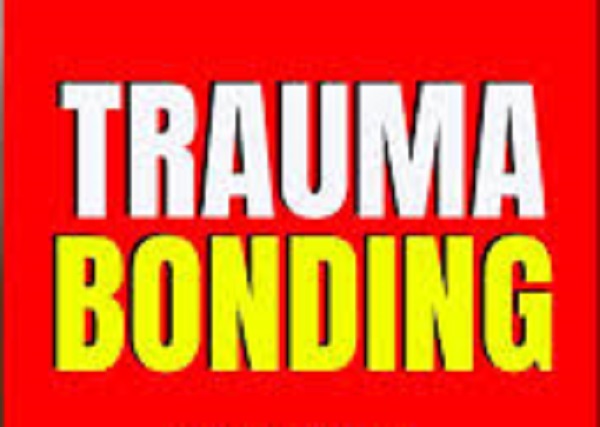Anxiety that you cannot manage and that interferes with your daily life could be a sign of generalized anxiety disorder (GAD). Take this test to find out if you have the signs of someone with an anxiety disorder.
Do I have anxiety? A behavioral disorder called anxiety is more severe than average, everyday anxiety. For instance, fretting over more aspects of your life than those around you, having frequent moments of extreme dread, and more. Answer all the quiz questions truthfully and completely. Instead of expressing how you wish you felt, your comments should reflect how you feel. Never forget that asking for help is never too late.
By taking the quick test below, you can find out if you act in a way that suggests a propensity for an anxiety disorder. Although useful, it is not meant to constitute a full diagnosis or identify a particular anxiety disorder. Your responses may give you a possible indicator of anxiety.
What Is Anxiety Disorder?
The phrase “anxiety disorder” refers to a group of psychiatric illnesses marked by intense fear or worry. The Anxiety and Depression Association of America (ADAA) estimates that anxiety disorders affect 40 million people aged 18 and older, or 18.1% of the population, annually, making them the most prevalent mental ailment in the country.
Additionally, 1 in 13 people worldwide, according to the World Health Organization (WHO), experiences anxiety. According to the WHO, generalized anxiety disorder (GAD) is the most prevalent mental illness globally, followed by specific phobias, severe depressive disorders, and social phobias. In fact, anxiety disorders are the most prevalent mental illness overall. According to this 2017 study, 792 million people worldwide (or 10.7% of the population) are estimated to have a mental health disorder.
Related Article: Best NATURAL REMEDIES FOR ANXIETY AND DEPRESSION in 2023
An estimated 4% of the population, or 284 million people, were thought to have an anxiety disorder, which is a startlingly huge proportion.
Common Types of Anxiety Disorders
- The hallmark of a generalized anxiety disorder (GAD) is constant and excessive worry about everything. People who have GAD may constantly worry about their finances, health, families, jobs, or other matters and may even predict tragedy. GAD sufferers have a hard time managing their worries. Even when there is no obvious cause for fear, they could worry more about real events than is necessary or assume the worst.
- Fear of heights. Technically speaking, this is characterized by great fear and anxiety about any location or circumstance from which escape might be challenging. Agoraphobia entails avoiding circumstances like being alone outside the home, taking public transportation, flying, or being in a crowded place.
- Panic disorder. People who suffer from sudden, seemingly unprovoked panic episodes are extremely worried about having another attack. Unexpected panic episodes might also happen as you are waking up from sleep. It’s not as if you’re thinking specifically about something when the worry turns into a panic attack.
- Excessive fear or worry over being away from home or someone important to you is referred to as separation anxiety.
- Social anxiety disorders are defined by high levels of anxiety linked to a worry about being criticized, rejected, or negatively assessed in a social or performance setting.
Who Is This Anxiety Disorder Test For?
The questions below are intended for people who are having anxious thoughts. The inquiries pertain to everyday occurrences experienced by those with a generalized anxiety disorder (GAD). Please carefully read each question and mark how frequently you have recently faced the same or comparable difficulties.
Anxiety Disorder Test
This anxiety disorder test should not replace an evaluation by a qualified behavioral healthcare professional because it is not intended to diagnose or treat any mental disease.
Related Article: Self-Loathing: Meaning, Causes, Effects & How to Deal
Please take a moment to carefully read each statement and identify to what extent it pertains to your recent week.
#1. Do you worry about a variety of issues?
Never
Rarely
Sometimes
Often
Nearly always
#2. Do you find it difficult to manage your worries?
Never
Rarely
Sometimes
Often
Nearly always
#3. Do you become easily agitated or angry when you are anxious?
Never
Rarely
Sometimes
Often
Nearly always
#4. Do you get tired or worn out when you worry or experience anxiety?
Never
Rarely
Sometimes
Often
Nearly always
Related Article: ANXIOUS ATTACHMENT: 2023 Definitive Guide
#5. Does anxiety or stress prevent you from getting to sleep or from staying asleep?
Never
Rarely
Sometimes
Often
Nearly always
#6. Can you focus while you’re worried or anxious?
Never
Rarely
Sometimes
Often
Nearly always
#7. Are you jittery?
Never
Rarely
Sometimes
Often
Nearly always
#8. Do you second-guess your performance?
Never
Rarely
Sometimes
Often
Nearly always
#9. Do you worry about how the future may turn out?
Never
Rarely
Sometimes
Often
Nearly always
Related Article: Mixed Anxiety Depressive Disorder: Common Symptoms, Causes, and Treatments
#10. Do your worries stem from things that have already happened?
Never
Rarely
Sometimes
Often
Nearly always
#11. When you experience worry or anxiety, do your muscles tense up?
Never
Rarely
Sometimes
Often
Nearly always
How Accurate Is the Anxiety Disorder Test?
A diagnostic tool is NOT what this test is. Only trained medical experts with a license can make a diagnosis of mental health issues. We think that getting an assessment might be a helpful initial step towards receiving therapy. All too frequently, people put off asking for assistance out of fear that their problems aren’t important enough or severe enough to require expert care.
You Are Not Alone
Anxiety disorders are the most prevalent mental ailment in the US, affecting 40 million adults, or nearly 18% of the population, according to the Anxiety & Depression Association of America.
One-quarter of Americans aged 13 to 18 in the U.S. suffer from childhood anxiety disorders, which are significantly more prevalent.
Related Article: How to Fix a Toxic Relationship: Best Easy Tips to Implement Now!!!
Additionally, nearly half of those with depression, which affects 264 million people globally and 17.3 million adults in the United States over the age of 18, also have anxiety.
The World Health Organization estimates that 1 in 13 individuals worldwide suffers from anxiety, so the next time you feel alone or like no one would understand you, take solace in the idea that you are not alone (WHO).
How Can Anxiety Be Tested for?
While such online tests can aid in a person’s understanding of their emotions, they should be followed by a professional evaluation. You can get assistance from your medical doctor or a mental health specialist such as a psychiatrist, psychologist, or certified clinical social worker.
According to NYU Langone Health, a medical professional’s anxiety test for adults includes a physical examination, numerous inquiries about your symptoms and any medications you are taking (some medications have the potential to cause anxiety as a side effect), and possibly a blood test to rule out any underlying physical conditions like hypothyroidism.
Related Article: The Stages of Grief: 2023 Comprehensive Guide
A healthcare provider will conduct a psychological evaluation after ruling out any physical or medication-related causes. They will inquire further about your symptoms, including how long you’ve had them and whether they come and go, as well as whether anyone in your family has ever suffered from depression or an anxiety disorder. An eating disorder or PTSD, both of which can coexist with anxiety disorders, can be found or ruled out by this evaluation.
Can a Mental Health Professional Online Diagnose me with Anxiety?
Although you can take tests online to determine whether you have signs of an anxiety disorder, it’s essential to consult a doctor in person to rule out or identify and treat any physical causes of your symptoms. Only licensed medical professionals with the necessary training can correctly diagnose you and begin your therapy.
Therapeutic Interventions for Anxiety Disorder
- Exposure Therapy, first Exposure therapy, a type of CBT, is a method for lowering fear and anxiety reactions. In treatment, a patient is exposed to a feared circumstance or object over time, gradually learning to become less sensitive. The treatment of phobias and obsessive-compulsive disorders is very successful with this method.
- Acceptance and Commitment Therapy (ACT) This form of therapy, also known as ACT, combines commitment and behavior modification with acceptance and mindfulness (being present and experiencing things without judgment) coping mechanisms to help clients deal with uncomfortable thoughts, feelings, and sensations. With the help of ACT, individuals can learn how to accept these experiences, put them in a different perspective, clarify their own values, and make the necessary behavioral changes.
Related Article: RELATIONSHIP ANXIETY: How to Deal With & Overcome It (Detailed Guide)
- Dialectical Behavioral Therapy (DBT) blends acceptance and transformation by fusing cognitive-behavioral procedures with ideas from Eastern meditation. DBT combines both individual and group therapy in order to develop interpersonal effectiveness, distress tolerance, and emotion regulation skills, as well as mindfulness.
- Interpersonal Therapy (IPT) is a brief, supportive psychotherapy that treats depression in adults, adolescents, and older adults by addressing interpersonal difficulties. IPT typically consists of 12 to 16 weekly, one-hour sessions.
- Eye Movement Desensitization and Reprocessing (EMDR) Eye movements may seem to lessen the severity of unsettling ideas. Eye movement desensitization and reprocessing, or EMDR, is a therapy that appears to have a direct impact on how the brain processes information. In essence, it makes it easier for someone to experience upsetting things.
EMDR seems to be akin to what happens naturally during REM (rapid eye movement) sleep or dreaming. A scientific study says that post-traumatic stress disorder can be successfully treated using EMDR. Additionally, it has been successful in treating phobias and panic attacks, according to physicians.
What makes anxiety worse?
Stress. Anyone might become anxious due to daily stressors like traffic congestion or missing a train. But persistent or long-term stress can result in long-term anxiety, increasing symptoms, and other medical issues. Stress can also cause people to engage in habits like consuming alcohol, skipping meals, or sleeping too little.
What is the most severe anxiety?
Anxiety emotions that are severe, overpowering, and frequently uncontrollable are known as panic attacks. Breathing issues, chest pain, lightheadedness, and perspiration are some examples of physical symptoms. A panic disorder may be present in someone who experiences frequent panic episodes.
What is severe anxiety?
Avoidance is a habit used by people to get rid of uncomfortable feelings, and it is frequently a result of severe anxiety. It may entail turning down invitations to gatherings or physically avoiding situations like crowded places. In some situations, avoidance can result in decisions about one’s life, such as choosing not to practice for a presentation out of anxiety.
What is false anxiety?
One of the most prevalent manifestations of fake anxiety is unwanted thoughts. Humans have a tendency to be pessimistic and frequently consider the worst-case scenarios, or “what if” ideas. We frequently become so enmeshed in our ideas that we become imprisoned by them.
Can anxiety be cured?
Disorders of anxiety are very curable. After many (or fewer) months of psychotherapy, the majority of anxiety patients are able to lessen or completely eradicate symptoms, and many patients see improvement after just a few sessions.
Frequently Asked Questions
How do doctors test for anxiety?
A physical examination, questions about your symptoms, and a blood test are all steps in the diagnosis of an anxiety disorder. This allows the doctor to rule out other conditions, such as hypothyroidism, that might be contributing to your symptoms. Your physician could inquire about any medications you are currently taking.
How do I know if I suffer from anxiety?
Symptoms
- Feeling tense, anxious, or restless
- Feeling of terror, doom, or impending peril.
- Having an increased heart rate.
- Breathing quickly (hyperventilation)
- Sweating.
- Trembling.
- Feeling worn out or feeble.
- Difficulty focusing or thinking about anything but the current issue.
Is anxiety a mental illness?
Nearly 30% of adults experience an anxiety disorder at some point in their lives, making it the most prevalent of all mental disorders. However, there are a variety of efficient therapies for anxiety disorders. Most persons who receive treatment can live regular, fulfilling lives.
Is anxiety a chemical imbalance?
But the specific source of anxiety problems is unknown to academics. They believe a number of variables are at play: Chemical imbalance: Prolonged or severe stress can alter the chemical equilibrium that governs your mood. An anxiety disorder might develop if you are under a lot of stress for an extended length of time.
What is the main cause of anxiety?
Traumatic experiences in childhood, adolescence, or adulthood are frequently the start of anxiety disorders. Being subjected to stress and trauma when you’re very young is probably going to have a significant effect. Abuse, either physically or emotionally, is one experience that might set off anxiety issues.



